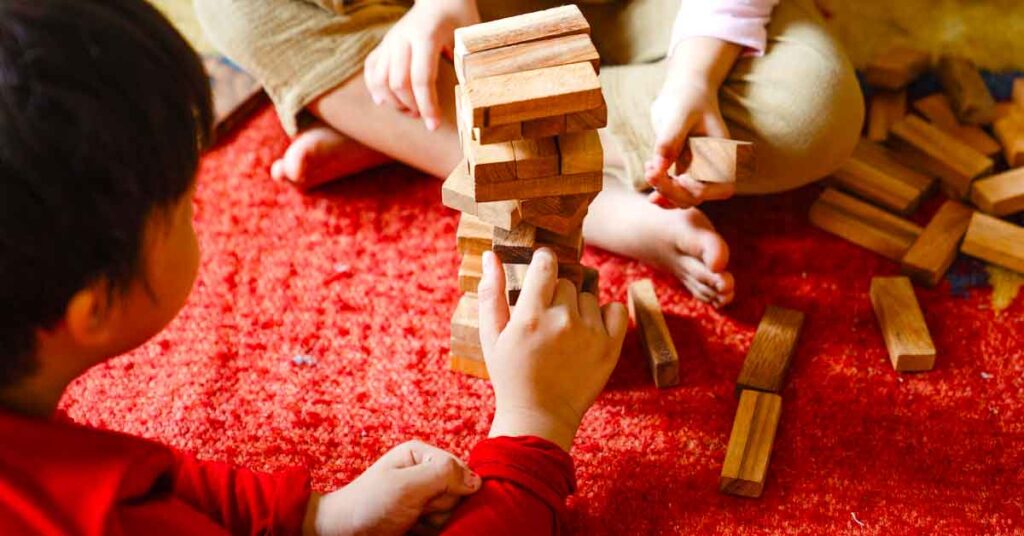You can define self-esteem as an individual’s overall sense of self-worth or value. It is the belief in one’s own abilities. People with a healthy self-esteem will have a positive self-image and matured opinion about themselves.
Having a positive self-esteem is essential for the overall well-being and development of a child. It affects their attitude towards life. It influences the way how they interact with others.
Various research studies have indicated that children with high self-esteem tend to have better problem-solving skills. As they grow up, they show more resilience towards life in general. Children who have poor self-esteem, on the other hand, may struggle with self-doubt and are more prone to negative emotions. And they often exhibit a lack of confidence and emotional imbalance, as they grow up.
Before proceeding to different techniques that parents can use to improve the self-esteem of their children, let’s delve into the various factors that contribute to low self-esteem in children.
Why do some children have low self-esteem?
Each child is unique and the reasons for low self-esteem may vary. Low self-esteem in children can be the result of a variety of factors, such as:
Negative experiences or abuse – Children who are subjected to abuse, neglect or other traumatic events in life often feel that they are unworthy or damaged.
Societal or cultural messages – In this modern world, children are often exposed to societal messages that promote unrealistic beauty standards. Amidst all those talks about racial or cultural equality, children are still exposed to suggestions like certain groups of people are superior to others.
Bereavement and related trauma – Some children cannot easily cope with the loss of a close relative or a dear friend. While it is perfectly natural and normal (and essential too) to grieve when a dear person depart this life, some children may find it difficult to cope with the bereavement. This may lead to extreme sadness, anger, guilt or withdrawal from social circles.
Bullying or social rejection – Children who are rejected by their peers may often develop a feeling like they are not good enough. In reality, the effects of bullying can be far more devastating than parents may think. Studies have shown that children who are repeatedly bullied over prolonged time may suffer from lower self-esteem and may exhibit higher rates of depression and anxiety even in their adulthood.
Parental attitudes and behavior – If parents tend to be overly critical towards their children, that can have adverse effects. When parents are emotionally unavailable or too much dismissive towards their children, it can make the children feel that their feelings are not valid. Such kids may often face difficulty in managing their own emotions.
What parents should note is that self-esteem is not fixed attribute. It is a trait that can be developed or improved by conscious efforts. Please remember that each child is unique and the reasons for low self-esteem may vary. And sometimes a combination of the above factors may contribute to low self-esteem in any particular child.
Strategies that parents can adopt to promote self-esteem of their child
1. Show empathy and understanding
As parents, it is very important to understand your child’s feelings and emotions. Encourage open communication. Stand by them during demanding situations. Help them to cope with difficult situations by providing love, perspective and guidance. Show them that you understand what they are going through. Show your child that you love and care for them unconditionally, no matter the circumstances and that you will always be there to support them at the critical junctures of life.
2. Encourage independence
By teaching children to be independent and self-sufficient, you can help them to develop a sense of confidence and self-esteem. Give your child age-appropriate responsibilities and opportunities to make decisions. This can help them to develop a sense of self-efficacy and self-reliance. Let them know that you trust and believe in their abilities, and encourage them to take risks and try new things.
3. Set realistic expectations
Avoid setting unrealistic standards that are impossible to meet for your child. Instead focus on learning and progressing in life. Help your child to set realistic goals and expectations for themselves. This will help them to feel more successful and less overwhelmed.






